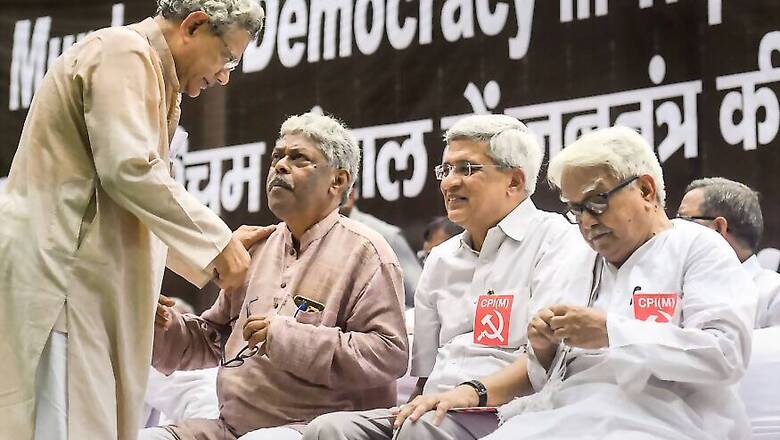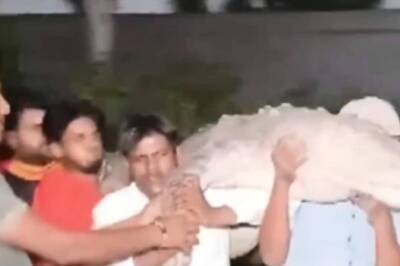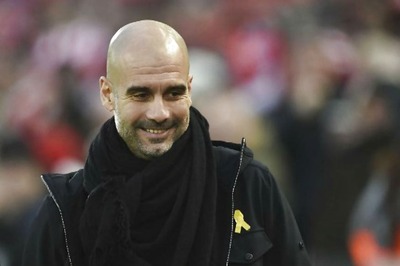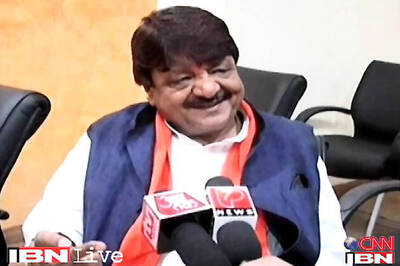
views
New Delhi: The CPM central committee, the highest decision-making body of the party, will meet in New Delhi on June 7-8 to dissect the reasons for its unprecedented electoral debacle and draw up measures to strengthen the organisation. Party circles are abuzz with reports of general secretary Sitaram Yechury offering to place his resignation before the central committee (CC), owning moral responsibility for the party’s dismal performance. But it will not be accepted, say sources.
However, the vertically divided party is expected to face fireworks as it tries to fix responsibility for its worst ever performance.
The fault lines painstakingly patched up at the Hyderabad CPM Congress in April last year may reappear before the CC. From a high of 43 MPs in the Lok Sabha in 2004, the CPM has been reduced to a three-member party in the 17th Lok Sabha. It drew a historic blank in its traditional strongholds of West Bengal and Tripura as well.
A key issue that the CC would brainstorm over and come out with a solution is as to why the CPM’s Hindu base is growing alienated and shifting gradually to bourgeoise parties. Why has the party’s vote share moved to the BJP in West Bengal and Tripura and to the Congress in Kerala, and to Jaganmohan Reddy’s YSR (Congress) in Andhra Pradesh?
The entire Left Font’s vote share in West Bengal came down to 7.46% from 29.93% in 2014 while the BJP’s vote share more than doubled — from 17.02% in 2014 to 40.25% in 2019.
The YSR (Congress) had expressed willingness to tie up with the CPM but the Andhra leaders outright rejected the offer without discussing the proposal at the Secretariat and state committee (competent forums authorised to take a stand on such issues) and the result was disastrous. The CPM vote share plummeted to a whole time low of 0.12% in last month’s Lok Sabha elections and 0.4% in the Assembly poll while YSR (Congress) bagged a whopping 49.95% vote share in Assembly and 49.15% in the parliamentary election.
In Telengana, the CPM did not seek an alliance with the Telangana Rashtra Samithi (TRS). Politburo member BV Raghavulu, in charge of both Andhra and Telangana, refused to go with the spirit of the Hyderabad Congress and chose to follow the Vizag Congress line of no tie-ups with bourgeoise parties. This led to serious damage to the party in Telugu states. In contrast, the Tamil Nadu unit had no such problem with bourgeoise parties and it joined the DMK-Congress alliance and saved the party from disgrace by winning two Lok Sabha seats.
Interestingly, Punjab state secretary Sukhwinder Singh Sekhon, participating in the Hyderabad Congress deliberations had castigated the Prakash Karat-faction, alleging that their re arm-twisting tactics were not allowing the general secretary to discharge his assignments.
The West Bengal committee had proposed to go with the Congress in August last year but the Karat-Pinarayi (Vijayan) faction in Politburo delayed clearance till December, leading to confusion in the Congress leadership and delay in working out agreeable modalities. By the time the CPM-Congress started negotiations, the anti-Trinamool Congress sections came out with a catchy slogan - “This time Ram, next time Vaam”. Party sources said the cadre was fed up with TMC’s strong-arm tactics and was desperate to vote it out and saw the BJP as a strong saviour. The state leadership failed to provide protection to its party workers.
For over a decade the CPM has been divided between puritans led by former general secretary Prakash Karat and pragmatists led by Yechury, with the former insisting on no truck with any bourgeoise party, including the Congress, and the latter advocating electoral understanding with all secular forces to stop the BJP juggernaut.
After the Assembly election debacle in Tripura last year, the CC had erroneously assessed that wholesale shift of Congress votes to the BJP led to a CPM rout in the hill state. It is now clear that the CPM votes are going to the BJP. In fact, the party base has been gradually eroding in Tripura even under a popular chief minister like Manik Sarkar.
While the CPM had secured 65% votes in the 2013 Assembly elections, its share drastically went down to 45% in the 2014 Lok Sabha elections and in 2018 it further depleted to 25%. In the Lok Sabha elections this year, it has recorded a low of 17%. It is obvious that CPM bosses in Tripura refused to read the writing on the wall.
It is now apparent that the party’s electoral tactics and strategy in its traditional bastions of West Bengal, Kerala, Tripura and in states like Andhra and Telangana where it has strong support base in several constituencies have been politically suicidal. The brinkmanship of state leaders is largely responsible for this historic drubbing.
Ideological confusion among cadres, eroding faith in the leadership and party mandarins’ poor understanding of BJP’s formidable election machinery, coupled with a lack of synergy at the top, are also the reasons for the party’s pathetic electoral performance.
(The author is a senior journalist and political commentator)




















Comments
0 comment